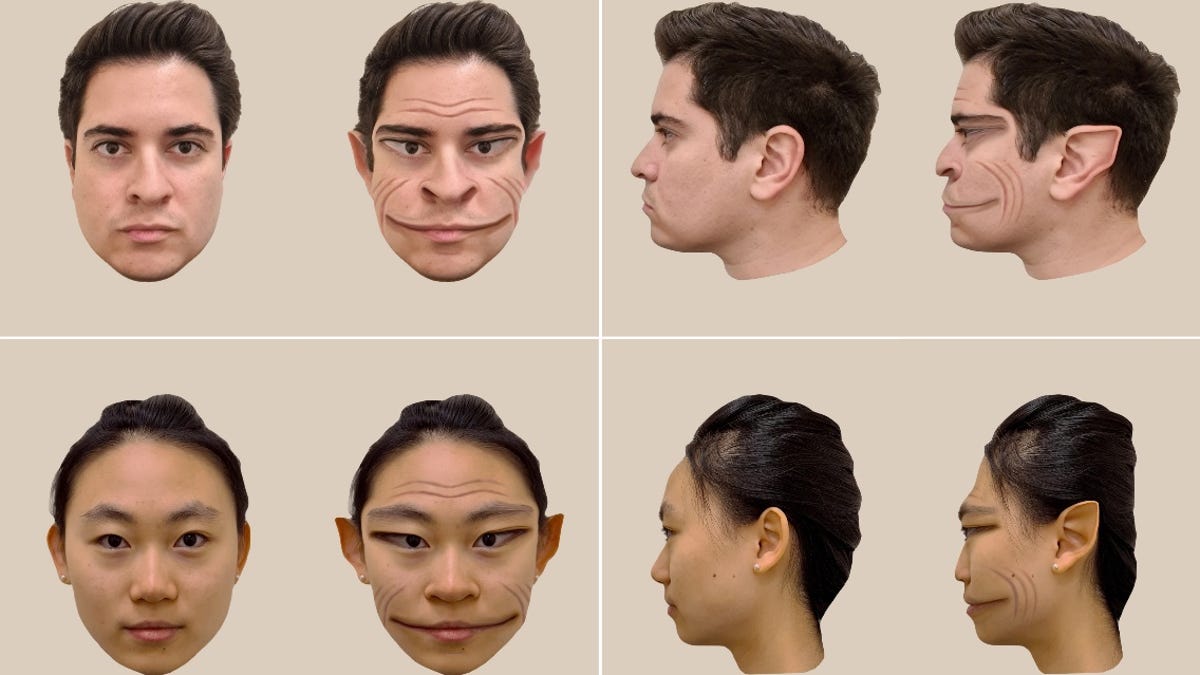Facial Distortion: A Rare Medical Condition Explained
A 58-year-old man has a unique medical condition known as prosopometamorphopsia (PMO), in which faces appear distorted, reptilian, or inhuman to him. Although he sees faces normally on screens and paper, when individuals are physically present, their faces take on a demonic quality.
A Peculiar Case Described in The Lancet
A recent study published in The Lancet delves into this unusual case, highlighting the man’s 31-month experience of perceiving distorted faces. Initially distressing, the patient has now become accustomed to these demonic appearances, allowing researchers to study the condition further.
Unlike other cases where patients struggle to visualize their distortions accurately due to the nature of visualization techniques, this unique case provided researchers with real-time insight into the patient’s perception of such facial distortions.
The Unsettling Nature of Distorted Faces
For this patient, in-person faces exhibit unsettling distortions such as stretched and angular eyes, flared nostrils, lips extending across the face width, grooves in the forehead, and elvish-shaped, pointed ears. In milder instances, facial features droop, shift position, or vary in size compared to reality.
Similarly, a 2014 case published in The Lancet narrates the experience of a 52-year-old woman in The Netherlands who reported seeing dragon-like faces multiple times a day, both from real faces and hallucinations, exhibiting similar reptilian features.
Challenges in Diagnosis and Understanding
Sufferers of PMO often face misdiagnosis and are prescribed antipsychotics due to overlapping symptoms with other psychiatric disorders like schizophrenia. The stigma associated with distorted face perception can lead individuals to hide their condition, fearing judgment.
The 58-year-old patient also had a history of bipolar affective disorder and PTSD, along with a head injury that the research team linked to a small round lesion on the left hippocampus. Similar brain lesions have been observed in individuals with Alice in Wonderland syndrome, which encompasses various perceptual distortions.
Insights into a Rare Perception Disorder
The rarity of PMO, with only 75 reported cases, underscores the unique and disturbing nature of this perceptual disorder. By understanding how these distortions manifest, future misdiagnoses can be minimized, offering clarity to patients experiencing such phenomena.
Image/Photo credit: source url





